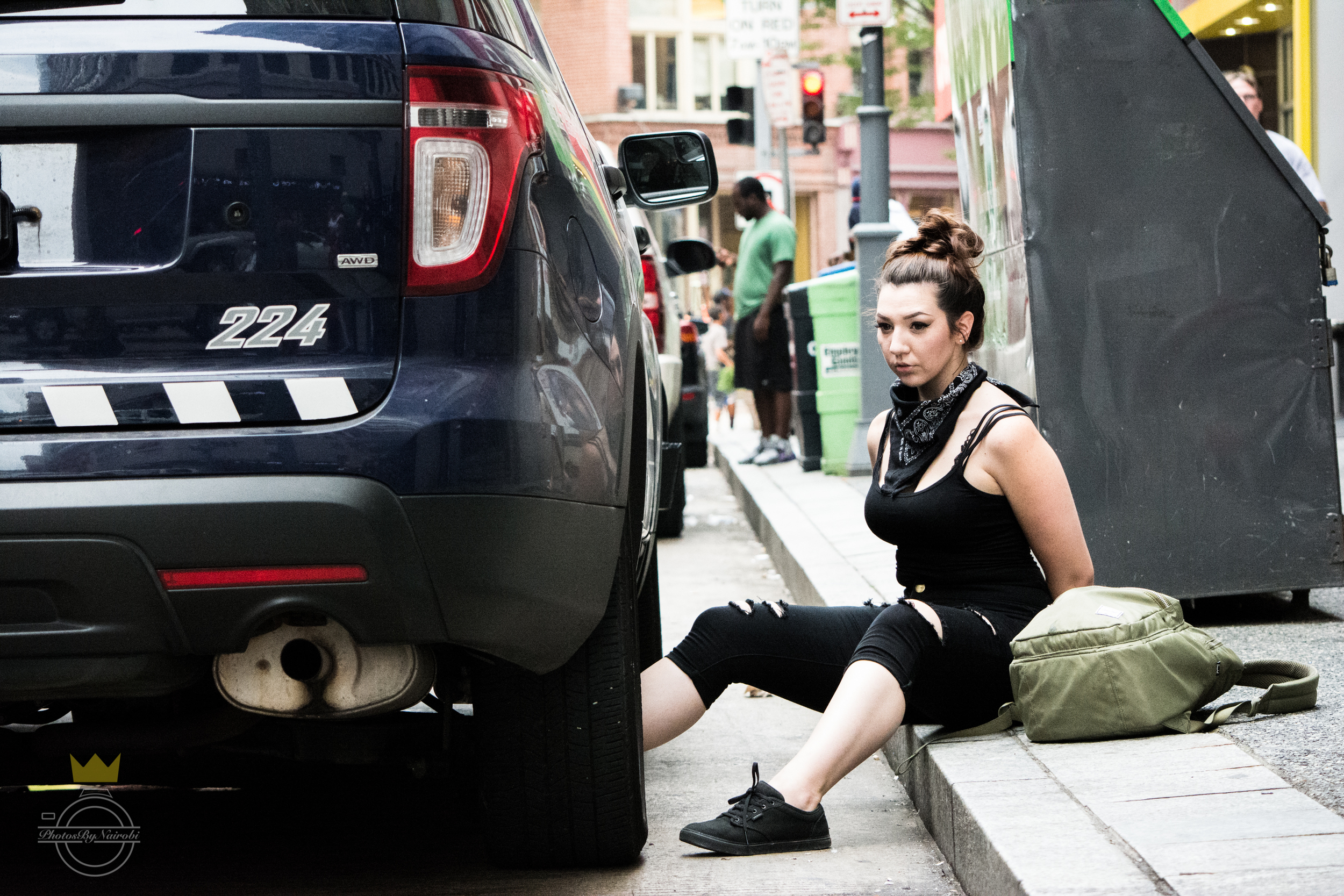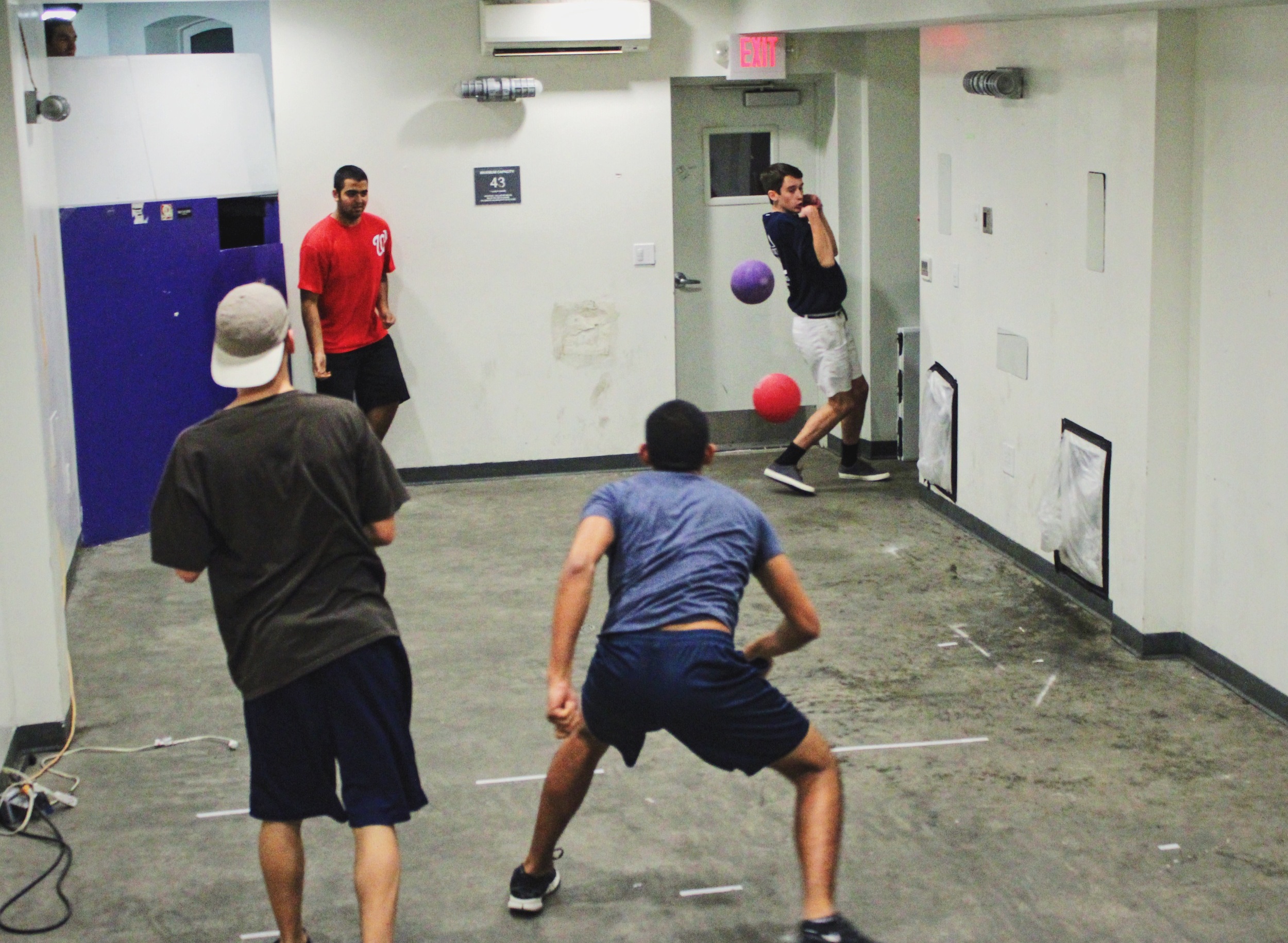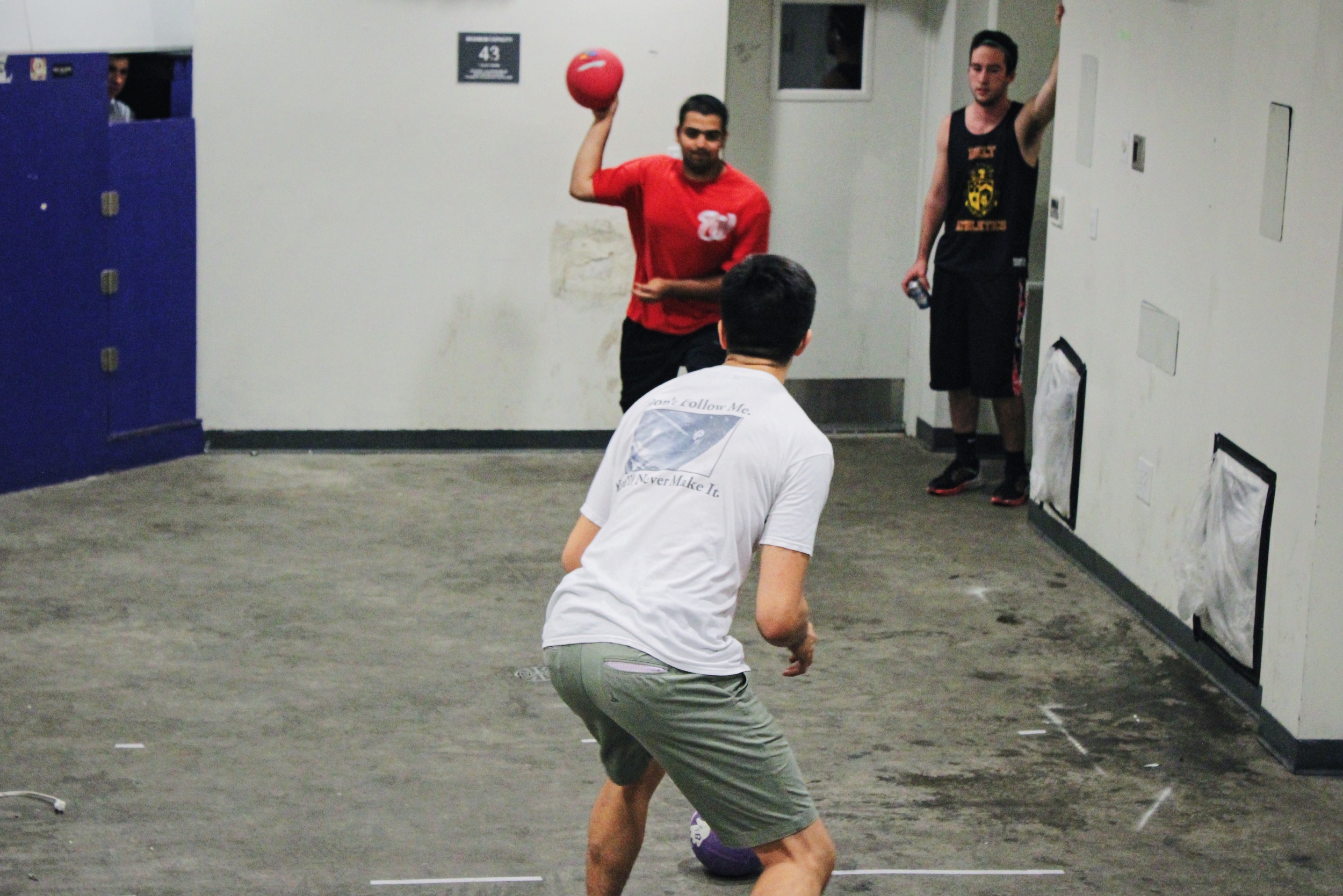Alex: What kind of music do you listen to?
Nairobi: I listen to a lot of hip-hop. I like reggae, I like R&B, and different music inspires me. When I was younger my school bus had a radio on it and my bus driver would only listen to country music. I would listen to the stories and be like… are you serious? This is what you guys were doing? I have my fair share of experiences with country music.
Alex: [laughs] It seems like while you may be indifferent to country you still took something valuable away from those stories the singers were telling.
Nairobi: Mmmhmm. I don’t want my work to resemble everything else on my page. The music inspires me to switch it up because you don’t listen to the same music every day.
Alex: How does it feel when you’re listening to music and that same artist coming through your headphones visits Pittsburgh and you’re standing on stage with him, taking his picture during his live show?
Nairobi: It’s crazy because the artists don’t know their music is on my phone, they don’t know they are on my playlist because I carry myself that way. My main thing is to not come off as a fan, that’s something I take pride in because I have been around a lot of people. I don’t want them thinking, “Oh there’s this kid in front of me with a camera and he’s just here because he’s a fan and he just happened to be a photographer.” That’s not the case at all, man. But, it definitely has a crazy feeling to it, like standing in certain sections of a party with them and then they go on stage and they didn’t even know I was a photographer. Just make sure to never come off as a fan, ever.
Alex: What artists have come to Pittsburgh that you really enjoyed, even if it’s somebody like Wiz Khalifa who is from the area?
Nairobi: I’ve actually never been to a Wiz Khalifa concert.
Alex: Neither have I.
Nairobi: I have been to two Lil Durk shows and a Young Thug concert that I took pictures at.
Alex: Would you say that Pittsburgh’s hip-hop community could be more welcoming to the contemporary artists? I find people like Travis $cott and Vince Staples do not frequent Pittsburgh often for one reason or another. Do you think that has an effect on the quality of music that comes from Pittsburgh?
Nairobi: Not at all, everybody in Pittsburgh thinks they are a rapper now. I don’t think it is the music that keeps them away; I think it is the promoters that keep them away. You have to be big enough to come to Pittsburgh. You’re not going to be an underground artist and come to Pittsburgh. If you’re an underground artist and somebody hits you from Los Angeles you’re going to LA because it’s a bigger stage. I feel like certain artists only come when they are big. The venues here aren’t as nice, like New York has a whole bunch of halls and centers, but Pittsburgh has Mr. Smalls, the Console Energy Center or Stage AE. If you’re not a drill artist or a hardcore hip-hop artist you’re not going to Stage AE or the Console, you’re going to the bars, the local clubs to perform, then another club and an after party. If you’re recruited to come here the promotion has to be done the right way.
Alex: So, if we are going to make a plug here, Shy Glizzy is coming to Pittsburgh Friday or Saturday?
Nairobi: He’ll be here Friday [Oct. 30] through Levels Agency.
Alex: How has your work been with Levels?
Nairobi: It has been great, all business. Twins, Elisha Hill and Elijah Hill, along with Wayne started Levels. I have known them since ninth grade when they were playing basketball for Wilkinsburg. I forget what the first conversation consisted of, but we followed each other on social media and I would see them around town, but once I got my camera and they started throwing parties that is how our relationship started. I appreciate them for sticking with me whenever my work wasn’t as solid. The first party I did for them was called the All Black Affair and it was the first time Lil Durk came. Ever since then it has been all business, it's a friendship too, but we are in it for the business.
Alex: You’re only 19-years-old and you said at times you have to pinch yourself. You are a personal photographer for somebody with notoriety and you have travelled the country, what is next? What do you see yourself doing in the next month?
Nairobi: The next month? Hmmm, I’m not sure yet, but I want to do another photo movie and I have a project that uses receipts. But, I do find myself pinching myself. I have to remind myself that I’m only 19 because whenever I was 17 and 18 I wanted to take pictures, travel, and do a lot of different things. I’m still in school, I’m about to graduate, I still haven’t figured out my camera all the way yet and I have a lot to learn myself. Everything that happened early this year with Martavis, travelling to Los Angeles and meeting people I looked up to this time last year or even chilling with people I watched play college ball, like, “Damn! He’s hard, that’s my man,” is because of Martavis. I give him all the credit. All of this is because of him he changed my life.
Alex: You’re working with people you admired, when you get in that moment its like, “Oh shit, you’re in front of my face, instead of on the TV.” How do you compose yourself professionally but also recognize them as real people, real people who just play football or happen to be a rapper? How do you compose yourself in that moment to network and just be friendly?
Nairobi: Make sure you never come across as a fan, that’s something I pride myself on. I know where I want to get, so the reason I network the way I do is because you never know who is willing to give you an opportunity. Like Martavis did for me, I never thought in a million years he’d ask me to come to LA and do these things for him. Whenever these people are in front of me I make sure to contain myself. We know who they are and we know what they do. Celebrities have a million people a day come up to them and say, “Yo! You’re such and such, you did this, that and the other!” It makes you standout more when you can sit there and chill. You don’t need to be in this man’s face, you have your own path, make the people want to know who you are.
Alex: When we talked earlier you said, “No handouts.” Can you elaborate?
Nairobi: I don’t appreciate handouts. I appreciate people doing things for me, but I don’t like people feeling like I need them. I don’t like whenever people say, “You only got this because of this or you got here because of this.” No, God is real; God is so real. I prayed on a lot of things to happen and I still can’t believe they actually happened.
Alex: You have tackled work in studios, done music videos, done personal photography and journalistic photography, and done photo-shoots. What is your dream assignment?
Nairobi: My dream assignment?... I've lived my dream. Going out to LA, being a notable person's photographer? That is really what I wanted to do, but now that I have done it I can't stop dreaming. In the future I would like to work for ESPN. I love football and I love sports as a whole. The atmosphere sports provide is good for me.




























